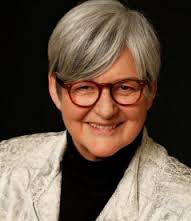
I’ve been asked the question a lot over the years. It’s an issue some of friends feel compelled to put to me whenever it comes up. And I feel compelled to respond. But friends and peers have asked it of me repeatedly these past months, in particular, this past week.
“What’s with all this rottenness at the CBC?” people ask.
Most recently, after the Toronto Star investigation revealed he was “brokering the sale of paintings” while hosting “Power and Politics” on television and “The House” on radio, Evan Solomon was fired by the CBC. It’s alleged that Solomon had been the go-between in the sale of art to such corporate elites as Jim Balsillie, of Research In Motion, and Mark Carney, the former governor of the Bank of Canada.
Well, I was as angry and disappointed as everybody else about this. But instead of joining the mob to lynch Evan Solomon, in this column, I thought I’d draw your attention to a CBC broadcaster, I knew, who was extremely ethical.

Back in the 1990s, I worked on-air at CBC Toronto, reading newscasts, as well as hosting regional and national current affairs shows for network radio and TV. Among my radio co-workers was a woman with an extraordinary knowledge of music, a knack for interviewing and a golden voice that made her an ideal candidate to move up the hosting ladder very quickly.
Instead, one day, Kris Purdy disappeared from CBC airwaves, not because of any wrongdoing. Not at all. Though she could have been groomed for a higher-profile on-air spot, she decided that a social connection with someone at a senior CBC management level might make her advancement appear unfair. She left broadcasting and pursued a different professional path. She chose ethical behaviour over a fatter expense account.
“What about the apparent betrayal of trust?” others have asked me with regard to Jian Ghomeshi.
Of course, this is the case in which the host of “Q,” perhaps the most powerful arts radio program in the country, was fired last October over allegations of sexual assault. Two women (among eight in the original charges filed) allege Ghomeshi engaged in rough sex, slapping and choking them; he has contended the encounters were consensual. I too was horrified by what appeared to be the protection Ghomeshi got because he was a star.

But again, instead of dwelling on the allegations, I’d prefer to draw your attention to someone else with whom I worked at CBC Radio. Jay Mowat worked as a current affairs producer from the most local of shows at CBC, right up to “The National” and “The Journal.” Though he was often the power behind the punch those programs exhibited, Jay never sought the attention his hosts enjoyed.
In the 1980s Jay and I launched a weekly show called “The Saturday Morning Show” on CBC Radio in Alberta. And I particularly remember his choice of regular contributor, freelance commentator Peggy Holmes; even though Peggy loved her moniker as “Canada’s oldest broadcaster,” she often found herself overlooked by programmers because she didn’t look young enough, or almost always talked about her experiences as a war bride in the 1920s and ’30s; CBC TV and radio shows tended to pass her by. Not our show.
“People love a good story,” producer Mowat would say. “And Peggy tells the best.”
So while other shows exhibited what was clearly an ageist attitude about Peggy, “The Saturday Morning Show” eagerly took her on as a regular guest storyteller. All I had to do each week was say, “Good morning, Peggy…” and she would tell some of the most extraordinary tales of life on a southern Alberta ranch in the Dirty Thirties, and she’d always offer a positive attitude about whatever life dealt her. Our show eventually earned the highest listener ratings in the province on Saturday mornings, thanks to Jay Mowat’s open mind about broadcasters and broadcasting.
People have also asked me about allegations involving Amanda Lang, CBC TV’s senior business reporter; last year, it was alleged that Manulife had paid Lang to moderate business seminars and that Sun Life had paid her to write and present a speech, which may well have compromised her objectivity in her on-air capacity.

Well, again, I found that all a bit tawdry. So, instead, I thought I’d tell you about a radio producer with whom I worked at the CBC, 25 years ago. Chris Hope was actually working around the clock when I met him. He’d put in a full shift as CBC technician during the day, and then dash home to study or attend classes to complete his law degree. Chris wasn’t using his CBC experience as a lever, but as a means to fund a professional career-in-progress.
I just wish we in the media and the public recognized the strong ethical behaviour of those CBC professionals rarely in the spotlight. They’re the ones who keep public broadcasting afloat in spite of itself
From one CBC alumnus to another: Thank you, Ted, for reminding us that the CBC is much more than just the recent bad behaviour of a handful of on-air personalities. The three people you cite in your column are sterling examples of thousands of extraordinary staff who have been working across the country for 80 years to produce truly superior radio and television. Most of them haven’t won fame or fortune — but because of them, the CBC remains the engaging and informative epicentre of Canadian culture.